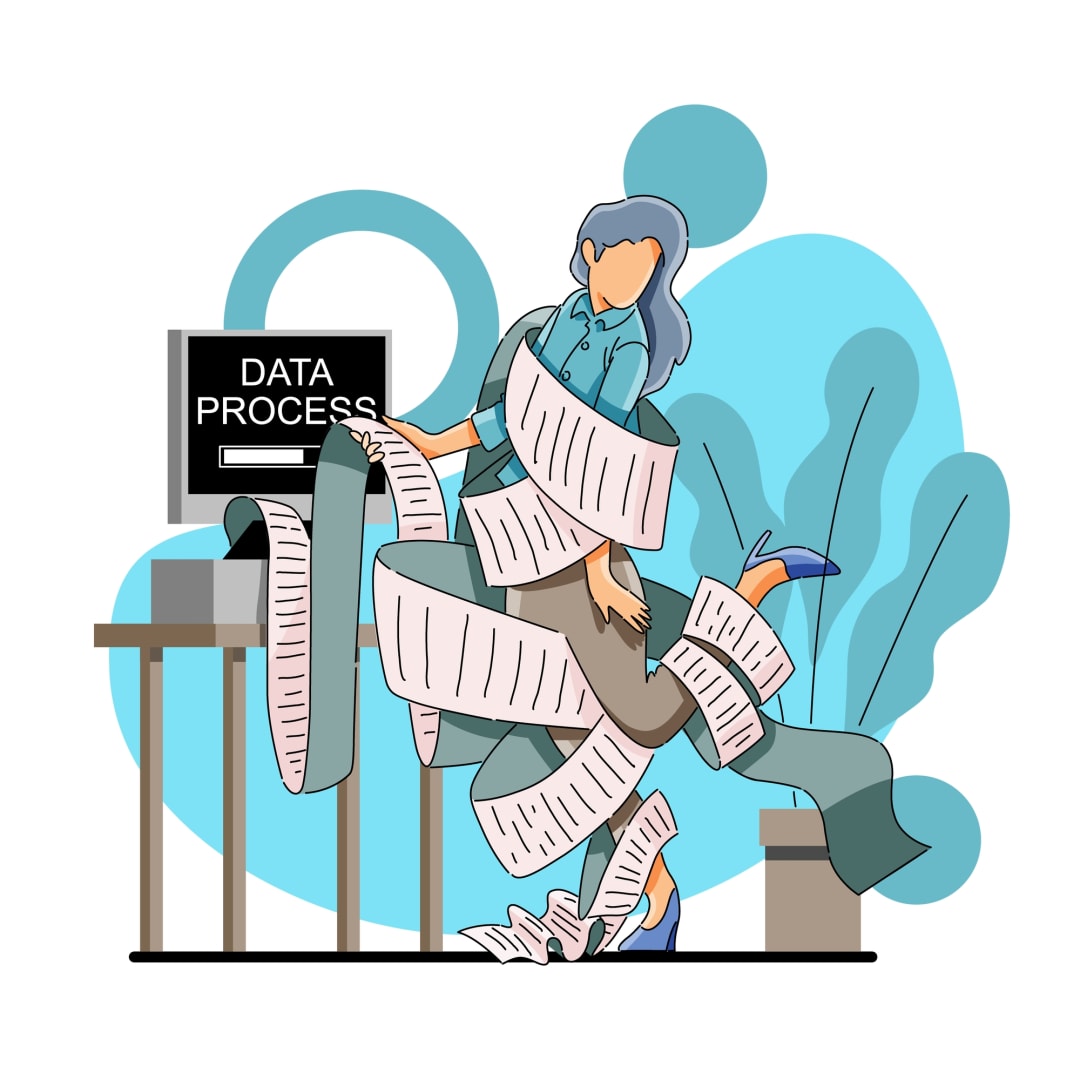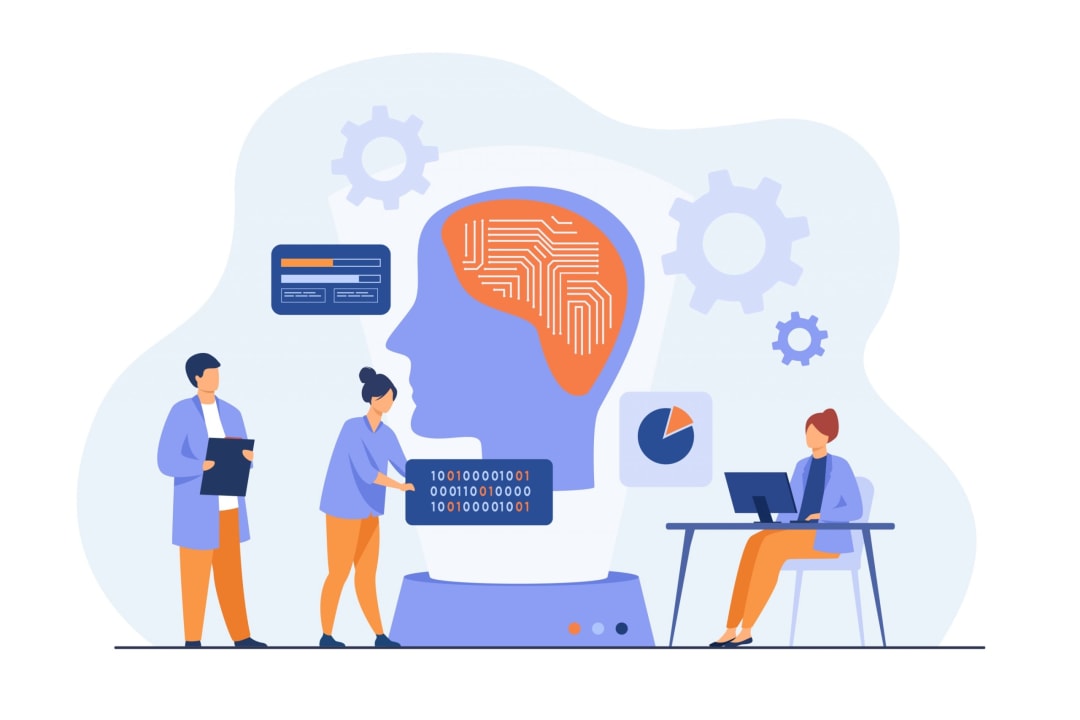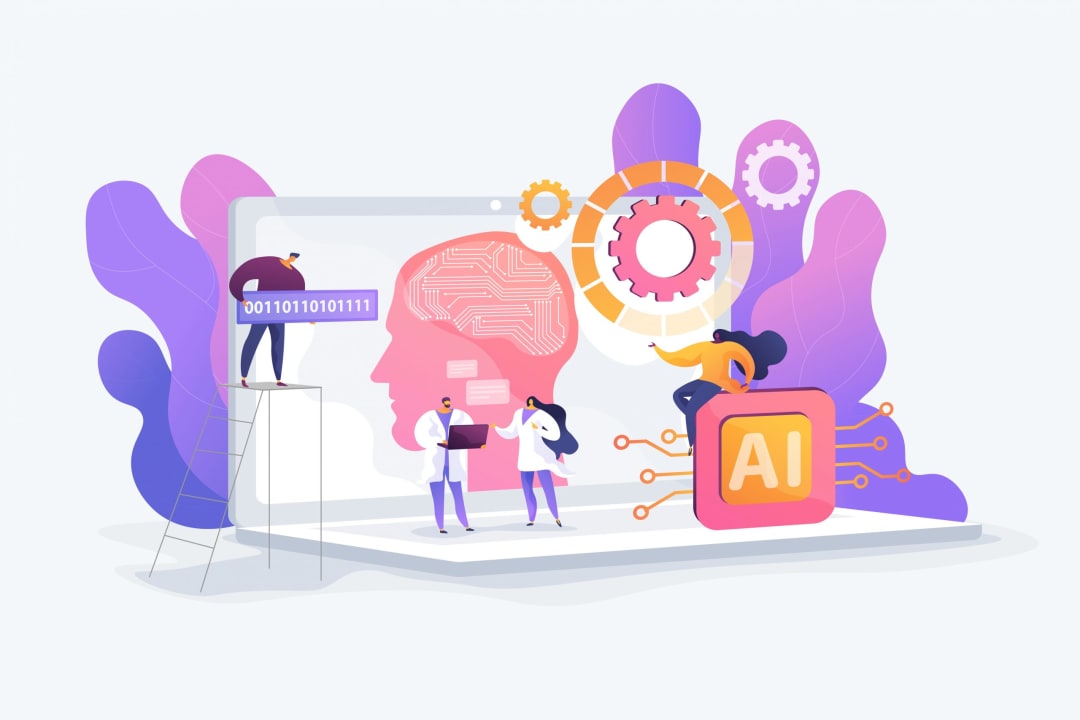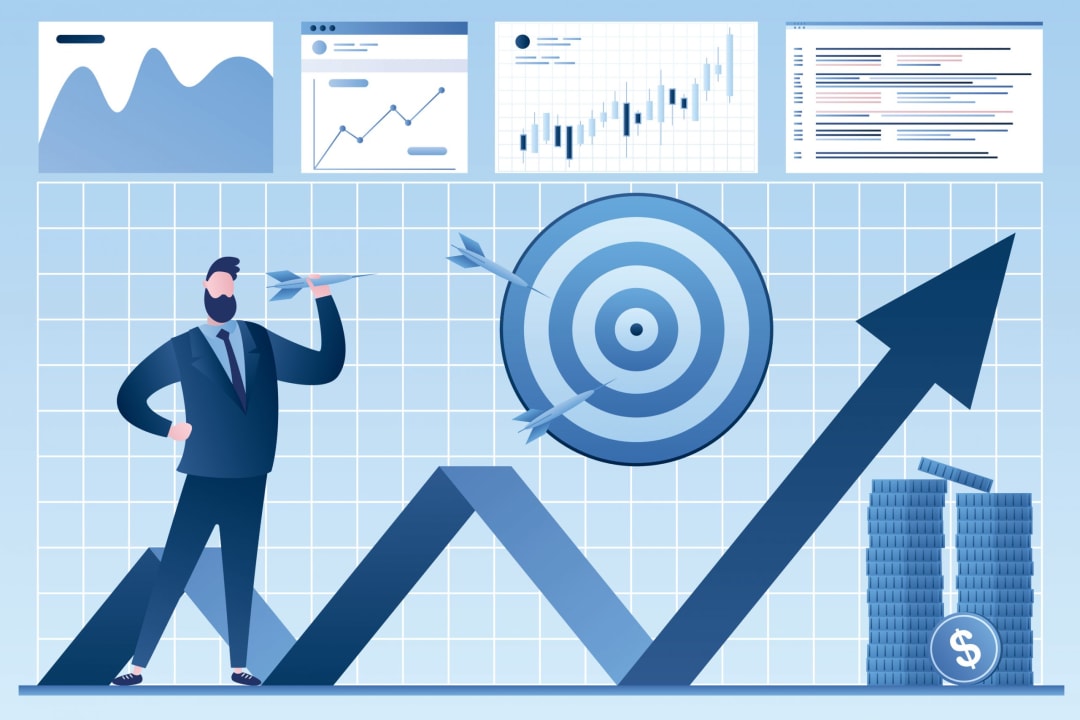15 Data Science Careers Worth Pursuing in 2021 was originally published on Springboard.
In 2021, data scientist is the second-best job in America. A quick search on LinkedIn shows 113,000 data science positions. From Facebook and Amazon to Pfizer and the Ford Motor Company, organizations of all sizes across industries have open data science jobs. However, this role is not the only data science career you can have.
Data science is a vast field, with several various generalist and specialist roles emerging within it. In this blog post, we explore the top fifteen data science careers worth pursuing in 2021 and beyond.
Is Data Science a Good Career?

Yes, it is. For a number of reasons:
- Growing field. LinkedIn identifies data science professionals as in-demand in 2021, reporting a 46% increase in job openings since 2019.
- High-paying. At $110,000, data science careers are among the most lucrative.
- Flexible. You can have data science jobs as a freelancer, consultant, part-timer, or full-timer, working on-site or remotely.
- Futuristic. The World Economic Forum finds that data science will power future economies, making it not just a trend but a long-term transformation in the way businesses—and the world itself—will run.
What’s the Current Data Science Job Outlook?

The Bureau of Labour Statistics projects a 22% increase in information research scientist roles this decade, a rate much higher than the average. On the other hand, studies show that over half of data science organizations have suffered no impact and have grown in size since the pandemic. Moreover, the post-pandemic world is expected to be more digitized, opening up immense opportunities for data science job growth.
Data Science Careers You Must Consider in 2021

While speaking of careers in data science, the most recognized role is the data scientist. In some ways, it’s also the most misunderstood. So, let us begin our discussion on data science careers from there.
Data Scientist
A data scientist gathers, cleans, and analyzes large volumes of structured and unstructured data to glean insights based on which organizations can make decisions. Companies employ data scientists for a wide range of reasons. For instance, at a pharmaceutical company, a data scientist might help analyze clinical trials to expedite research. In a retail organization, they might be working on personalizing offerings for the customer. In short, they spot trends and leverage data to solve business problems.

Data scientists have skills in applied mathematics, statistics, programming, and the business domain. While most jobs expect a bachelor’s or master’s degree, it is not necessary.
Data scientists earn an average of $110,000. With experience, this can go over $200,000, not including bonuses and stock options.
Data Engineer

Data engineers prepare and transform data using pipelines. Their responsibility is to collect, process, and store organizational data to ensure data scientists and machine learning engineers can make the most of it.
Data engineers have skills in cloud platforms, ETL (Extract, Transfer, Load) tools, programming languages like Python, R, SQL, data warehousing solutions, etc.
Data engineers can earn an average of $100,000. However, with experience and specialization, this can go over $200,000.
Data Analyst

In many ways, one of the stepping stones to data science positions is the data analyst, who identifies trends, patterns, and relationships within data and uses this insight to make business decisions. They perform data mining, organize the information, build visualizations, and present reports to stakeholders.
While some jobs might demand a bachelor’s degree in mathematics or statistics, several roles today are welcoming degrees/qualifications in finance, economics, politics, etc. The primary skills of a data analyst are database languages like SQL, analytical tools like Microsoft Excel, programming languages like Python or R, computing environments like MATLAB, etc.
Entry-level data analysts earn $40,000 to $60,000. With experience, data analytics leaders can earn over $250,000. Data analysts can also gain additional skills in programming, machine learning, etc., and transition to those careers seamlessly.
Data Architect

A data architect creates the systems and tools used by data scientists, analysts, machine learning engineers, and AI professionals. They understand the needs of data science professionals, develop systems, implement new architectures, and stay ahead of regulatory compliance.
Most entry-level data architects are undergraduates in computer science, information technology, or a related field. To get senior-level roles, a master’s degree might be handy. Data architects have skills in cloud technologies, data warehouses/lakes, systems analysis, programming languages like Java, Python, or SQL. Organizations also expect them to have certifications like the Certified Data Management Professional (CDMP), TOGAF 9 Certification Program, and the IBM Certified Data Architect (Big Data).
Data architects earn an average of $125,000.
Data Modeler

A data modeler translates real-world business needs into data models. They work closely with data architects to create conceptual, logical, and physical data models. They support application teams in designing databases. And collaborate with data governance teams for compliance.
A bachelor’s degree in computer science or data science is typically expected for these roles, in addition to skills in SQL, cloud environments, relational and dimensional modeling, business domains, and the software development lifecycle. They also have experience with data modeling tools like Erwin, ER Studio, MagicDraw, Oracle Designer, Visio, etc.
A data modeler earns an average of $95,000. This can go up to $150,000 with experience.
Data Storyteller

As the name suggests, a data storyteller tells stories using data. They build a narrative using key data points and insights. Within the media and journalism space, data storytelling is gaining immense popularity. Even among business organizations, they help simplify and contextualize large volumes of data.
A data storyteller combines skills in the business domain, data analytics, and visualization. This means that they should be able to crunch data in tools like Microsoft Excel as well as present them using Powerpoint, graphs, animations, etc.
A data storyteller earns an average of $53,000. With experience, they can move up to roles like data visualization expert, business intelligence analyst, etc.
Data Mining Expert

A data mining expert discovers and extracts patterns from large volumes of data. In essence, they convert humungous raw data into meaningful insights. This task of finding correlations, identifying anomalies, etc., plays a crucial role in predictive analytics and machine learning algorithms.
A data mining expert is expected to have an undergraduate degree in computer science, information systems, statistics, or related fields. They also have skills in database tools such as SQL, NoSQL, SAS, and Hadoop, and programming languages like Java, Python, and Perl.
A data mining engineer makes an average salary of $94,000.
Machine Learning Engineer

A machine learning (ML) engineer is a programmer who designs self-running software that uses data and automates predictive models. ML engineers bridge the gap between data and software, creating programs that allow machines to function without direct human assistance. ML engineers are in-demand for a wide range of functions. For instance, Twitter is looking for an ML engineer to identify trends or prevent misinformation. Apple is looking for an ML engineer to strengthen its accessibility features.
A machine learning engineer needs two skillsets: Data science skills like data wrangling, querying data sets, developing and testing hypotheses, building regression models, etc. Software engineering skills to write algorithms, programming with Python, Java, Scala, C++, etc.
ML engineers earn an average salary of $140,000.
Machine Learning Scientist

Unlike the machine learning engineer, the scientist role is more research-oriented. They work on developing intellectual property (IP) for their organizations. Take this role at Amazon Music, for example:
You’ll work in a collaborative environment where you can pursue ambitious, long-term research, with many peta-bytes of data, work on problems that haven’t been solved before, quickly implement and deploy your algorithmic ideas at scale, understand whether they succeed via statistically relevant experiments across millions of customers, and publish your research.
Given that it is research-heavy, you will be expected to have a Ph.D. in machine learning, neural networks, computer vision, deep learning, etc. In addition, you will also be expected to have skills in programming with C/C++, OpenCV, artificial intelligence, automation, model deployment, etc.
Machine learning scientists earn an average salary of $137,000. Amazon, Microsoft, Apple, and other high-technology companies offer salaries in the range of $150,000 to $180,000.
Business Analyst

Within data science careers, the business analyst (BA) is an analytical problem solver. They use organizational data to identify patterns, understand business situations and recommend solutions.
As a business-oriented role, BAs often have a bachelor’s degree in non-statistics streams like business or project management. They have skills in critical thinking, logical reasoning, analytics, design thinking, etc. Some of them are also familiar with SQL, BPMN, Microsoft Visio and can perform tasks such as data mining, cleansing, preparing reports, etc.
Business analysts earn an average salary of $71,000.
Business Intelligence Analyst

Business intelligence (BI) analyst enables organization to leverage their data for decision-making. They collaborate with business teams to understand needs, design BI products such as dashboards, presentations, infographics, etc., train stakeholders to use the tools, sometimes even support the development of BI products.
Most BI analyst jobs expect a bachelor’s degree in computer science, mathematics, accounting, economics, statistics, business, management, or related fields. Additionally, skills in data warehouse, data mining, data modeling, BI tools, and programming languages like Hadoop, SQL, Python, and C# can be beneficial.
A business intelligence analyst earns an average salary of $75,000.
Application Architect

As the name suggests, an application architect designs desktop, web, and cloud applications. Since nearly all apps today have a data-related component, data science skills have become central to this role. The primary responsibility of an application architect in data science positions is to enable data capabilities to enterprise applications.
Organizations demand a bachelor’s degree in software engineering, application development, or related computer science fields for this role. In addition to programming skills, application architects would also need a clear understanding of the software development lifecycle, agile methodologies, DevOps, etc.
The average salary for an application architect is $135,000. With experience, this can go up to $180,000.
Database Administrator

Database administrators set up, maintain, fine-tune and upgrade databases for organizations. They analyze system logs to identify issues, develop monitoring capabilities, ensure security compliance, and troubleshoot problems. While technically, it’s not a data science position—in that it focuses more on managing databases than insights—database administrators are critical to ensuring accurate and timely analytics.
Employers prefer applicants with a bachelor’s degree in computer science or information systems. However, this might not be necessary. Certifications like MySQL Database Administrator, Microsoft Certified Database Administrator, or Oracle DBA help boost your resume.
The average salary of a database administrator is $88,000.
Quantitative Analyst

In the financial services industry, quantitative analysts design computer algorithms and present data models for investment banks, commercial banks, insurance companies, hedge funds, and management consultant firms. Quants, as they’re sometimes called, work on the trading floors, analyzing trends and looking for the most profitable assets.
To succeed in financial services, you need a bachelor’s degree in mathematics, physics, statistics, or finance. And skills in algorithmic trading system automation, data feeds, data mining, pattern recognition, as well as programming with Java, Python, SQL, and MATLAB. Certifications like the Chartered Financial Analyst certificate and Certificate in Quantitative Finance are helpful too.
The average salary of a quantitative analyst is $106,000.
Qualitative Researcher

Data science has predominantly been about numbers. Recently, among careers in data science, qualitative research is gaining popularity in businesses and governments alike, especially in areas of user experience design, product design, etc. They use qualitative methods like surveys, interviews, and observational research as part of their work.
Organizations hiring qualitative researchers often expect a master’s or a Ph.D. in human behavior-related fields such as human-computer interaction, psychology, sociology, anthropology, economics, political science, etc. They are also expected to have skills in usability studies, task analysis, heuristic evaluations, experience maps, requirements analysis, multi-method studies, etc.
The average salary of a qualitative researcher is $78,000.
Data Science Career FAQs

Can You Get Into Data Science With No Experience?
Yes. You can have a career in data science without prior experience. The three things you need to do to begin your career in data science are:
- A rock-solid data science foundation
- Relevant hands-on experience
- A portfolio to demonstrate your skills
What Skills Do You Need To Land an Entry-Level Data Science Position?
To start a career in data science, you need two kinds of skills: Technical and interpersonal.
- Solid foundation in mathematics/statistics
- Data extraction and cleaning
- Comfort using SQL databases and the Hadoop platform.
- programming skills in Python or R
- Communication skills and storytelling
Do You Need a Degree To Work as a Data Scientist?
No. You can also get a job as a data scientist through self-learning, practice, and hands-on experiences. Given the talent gap in data science and allied fields, a comprehensive boot camp can give you the skills and the expertise you need to work as a data scientist.
If you’re looking to transition to data science, consider Springboard’s Data Science Career Track. With a job-ready curriculum, hands-on projects, 1:1 mentorship, and career coaching, this program offers you everything you need to kickstart your data science career.
Is data science the right career for you?
Springboard offers a comprehensive data science bootcamp. You’ll work with a one-on-one mentor to learn about data science, data wrangling, machine learning, and Python—and finish it all off with a portfolio-worthy capstone project. Check out Springboard’s Data Science Career Track to see if you qualify.
Not quite ready to dive into a data science bootcamp?
Springboard now offers a Data Science Prep Course, where you can learn the foundational coding and statistics skills needed to start your career in data science.
The post 15 Data Science Careers Worth Pursuing in 2021 appeared first on Springboard Blog.



